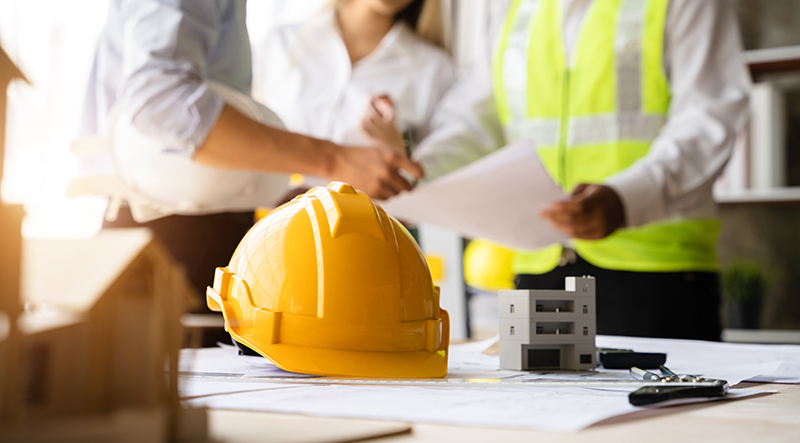
Many facilities management departments at educational institutions are also responsible for planning, managing, and overseeing construction projects. Unfortunately, where construction happens, it can sometimes lead to construction disputes, as projects cost more than anticipated, take longer than planned, make unanticipated changes, experience miscommunication and/or other issues. When dispute resolution cannot be resolved through negotiation, it frequently ends up in litigation where attorneys on both sides retain experts to provide objective testimony on the merits of the case.
According to the American Bar Association, experts who are not attorneys can have various roles in cases. “They can assist with assessing the value of a case; formulating claims, counterclaims, and defenses; drafting discovery requests and responses; reviewing documents; challenging the other side’s experts;” and various other functions.
Until recently, the expert’s role as a litigation “expert witness” has been the primary function related to the engagement of experts in construction management and dispute resolution. However, fewer construction disputes have reached the litigation stage in recent years, especially during and after the pandemic. Factors such as court backlog, the expense of bringing cases to trial, and the length of time to complete litigation, among others, contribute to an earlier resolution of disputes well before it gets to the litigation phase. Therefore, is there still a need for non-lawyer expert witnesses, and what will their role be in this post-pandemic dispute resolution environment?
Whether a dispute goes to trial or not, there continues to be a need for experts in construction dispute resolution. Today’s use of experts tends to engage them earlier in the dispute resolution timeline. The expert’s role is evolving as a trusted and objective information provider and process analyst. They will work within the dispute resolution unit, especially in collaboration with the legal team.
The highly specialized knowledge and experience of experts is being more effectively channeled for use outside of the litigation phase, assisting owners, architects, engineers, construction companies, and others throughout the construction process, including:
- The proactive use of experts as potential risk analysts: More and more projects are bringing in experts earlier during the project planning phase. At this stage, an expert’s role is to review the upcoming management plan and methods with an objective eye toward minimizing potential risk points.
- Utilizing experts to analyze and recommend alternative project strategies: The function of architects, engineers, and builders is to design and build a structure. Sometimes, in pursuit of their mission, they can overlook certain risk points or assume that other participants are covering them. By utilizing experts early on to assess the plan and strategy, especially through the implementation of game theory analysis, where many “what if” questions can be answered, experts can bring to the project a valuable perspective for considering alternative courses of action and identifying potential areas of risk together with the potential to reduce them.
- The use of experts throughout the project: Project teams can utilize experts as objective oversight to get a so-called “second opinion” about the operation and development of the project as it progresses. Experts can be especially valuable in overseeing highly technical areas to identify risk points and eliminate them before they can negatively influence results.
- Bringing in experts to assess the dispute once it occurs: Experts can provide an objective perspective to construction dispute resolution, even before the dispute gets into the lawyers’ hands. Experts can assess the dispute’s circumstances and the value of pursuing various courses of action.
- The expert as a dispute strategist: Experts can function as dispute resolution strategists, recommending options and strategies for resolving disputes more effectively.
- Utilizing experts during the phases before litigation: Once a dispute reaches the arbitration or mediation phase, experts can often provide a depth of insight that can dramatically influence the parties to work towards resolving their issues.
Of course, the traditional use of experts during the litigation phase and in the courtroom continues to be an important utilization of experts. In this role, they can help the legal team assess the value of a case, formulate claims, counterclaims, and defenses, draft discovery requests and responses, review documents, and help challenge the other side’s experts. However, in today’s resolution environment, involving experts earlier in the resolution process can help construction-related companies minimize their exposure, risk, and costs.
Emerging protocols, such as Building Information Modeling (BIM), enhance collaboration from the start because all participants in a project want to identify and eliminate potential risk areas well before they become disputes. Therefore, the retention of experts earlier as experienced, objective contributors to the overall project team is evolving as an effective way of reducing or eliminating disputes later on. Facilities managers at educational institutions should consider the engagement of experts well before issues arise because they offer valuable potential to reduce or eliminate areas of disagreement or misunderstanding and improve the quality of the overall project.
James Gallagher, P.E., F.ASCE, is a principal at Resolution Management Consultants, Inc. in Marlton, NJ. He can be reached at [email protected].
Perspective on the Profession
Provides opinion and commentary on aspects of education administration, funding, and campus facilities management. To contribute, contact [email protected].
See all Perspective on the Profession.


